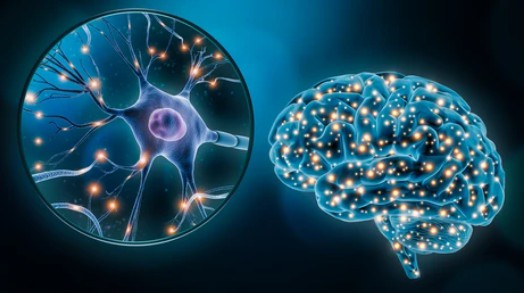Neuroscience
Creative BioMart Neuroscience Product List
Immunology Background
Neuroscience is a multidisciplinary field of study that explores the structure, function, development, and disorders of the nervous system. It encompasses various scientific disciplines, including biology, psychology, chemistry, computer science, and physics, to understand the complex workings of the brain and the nervous system.
At its core, neuroscience seeks to uncover the fundamental principles that govern how the brain and nervous system function. It investigates the intricate network of neurons, the cells that transmit electrical and chemical signals, and their interactions with each other and with other bodily systems. By studying the nervous system, neuroscientists aim to unravel the mechanisms underlying perception, cognition, emotion, behavior, and consciousness.
Neuroscience employs a wide range of research techniques and tools, including neuroimaging (such as functional Magnetic Resonance Imaging or fMRI), electrophysiology, molecular biology, genetics, and computational modeling. These methods allow scientists to investigate the brain at different levels, from individual neurons and their connections to large-scale brain networks.
The findings from neuroscience research have far-reaching implications for various fields, including medicine, psychology, education, and artificial intelligence. They contribute to our understanding of neurological and psychiatric disorders, such as Alzheimer's disease, Parkinson's disease, schizophrenia, and depression, and inform the development of new treatments and interventions.
Moreover, neuroscience sheds light on how the brain learns, adapts, and interacts with the environment, providing insights into human behavior, decision-making, learning, memory, and creativity. This knowledge has practical applications in areas such as education, cognitive enhancement, and rehabilitation.
In summary, neuroscience is a fascinating and rapidly evolving field that investigates the complexities of the nervous system and its impact on human cognition, behavior, and health. It combines insights from various disciplines to unlock the mysteries of the brain and advance our understanding of what makes us who we are.

Significance of the Study of Neuroscience
The study of neuroscience holds great significance in several aspects, contributing to our understanding of the human brain, behavior, and health. Here are some key reasons why neuroscience is important:
Understanding Brain Function: Neuroscience provides insights into how the brain processes information, controls behavior, and generates thoughts and emotions. By studying the structure and activity of the brain, researchers can uncover the mechanisms underlying perception, memory, language, decision-making, and other cognitive processes. This knowledge helps us understand the fundamental workings of the human mind.
Advancing Medical Treatments: Neuroscience research plays a crucial role in the development of treatments for neurological and psychiatric disorders. By investigating the causes and mechanisms of conditions like Alzheimer's disease, Parkinson's disease, epilepsy, depression, and schizophrenia, scientists can develop new therapeutic approaches and interventions. Neuroscience also contributes to the improvement of brain imaging techniques, surgical procedures, and rehabilitation methods, enhancing patient care and outcomes.
Promoting Brain Health: Neuroscience research helps us understand how to maintain and enhance brain health throughout life. It provides insights into the effects of aging, stress, lifestyle factors, and environmental influences on brain function and cognition. This knowledge informs strategies for promoting brain resilience, preventing cognitive decline, and optimizing mental well-being.
Informing Education and Learning: Neuroscience provides valuable insights into how the brain learns and processes information. Understanding the neural mechanisms of learning helps educators develop more effective teaching methods and educational interventions. Neuroscience research also contributes to our understanding of developmental processes, guiding interventions for children with learning disabilities or neurodevelopmental disorders.
Advancing Artificial Intelligence: Neuroscience research inspires and informs the development of artificial intelligence (AI) systems. By studying the brain's computational principles and neural networks, scientists seek to create AI models that can perform complex tasks, recognize patterns, and mimic human cognitive abilities. Neuroscience contributes to the development of brain-inspired algorithms and technologies, pushing the boundaries of AI research.
Exploring Consciousness and Identity: Neuroscience research plays a role in understanding the nature of consciousness and the neural basis of subjective experiences. By investigating the relationship between brain activity and subjective states, scientists explore questions related to self-awareness, perception, and the nature of human identity.
In conclusion, the study of neuroscience is significant as it deepens our understanding of brain function, informs medical treatments, promotes brain health, enhances education and learning, advances artificial intelligence, and explores the mysteries of consciousness. By unraveling the complexities of the brain, neuroscience continues to have a profound impact on various aspects of human life and society.
Research Tools for Neuroscience
Creative BioMart provides a diverse range of products, services, and resources tailored to advance neuroscience research.
Varied Product Lines: Our inventory encompasses a wide array of products, including recombinant proteins, cell and tissue lysates, protein pre-coupled beads, antibodies, and more, all meticulously crafted to enhance the success of your experiments.
Tailored Services: Rely on our adept scientific team, armed with extensive experience and expertise, to personalize specific proteins, antibodies, or experimental protocols to suit your distinct needs, ensuring your research demands are fulfilled.
Comprehensive Resource Support: In addition to product offerings, we extend comprehensive resource support. Access pathways, protein functionalities, interacting proteins, and relevant articles associated with Neuroscience, enriching your understanding and research into the functions and regulatory mechanisms of these vital molecules.
We aim to empower researchers with valuable insights and holistic support for their neuroscience investigations. For further details or inquiries, please do not hesitate to contact us.
Our Advantages


